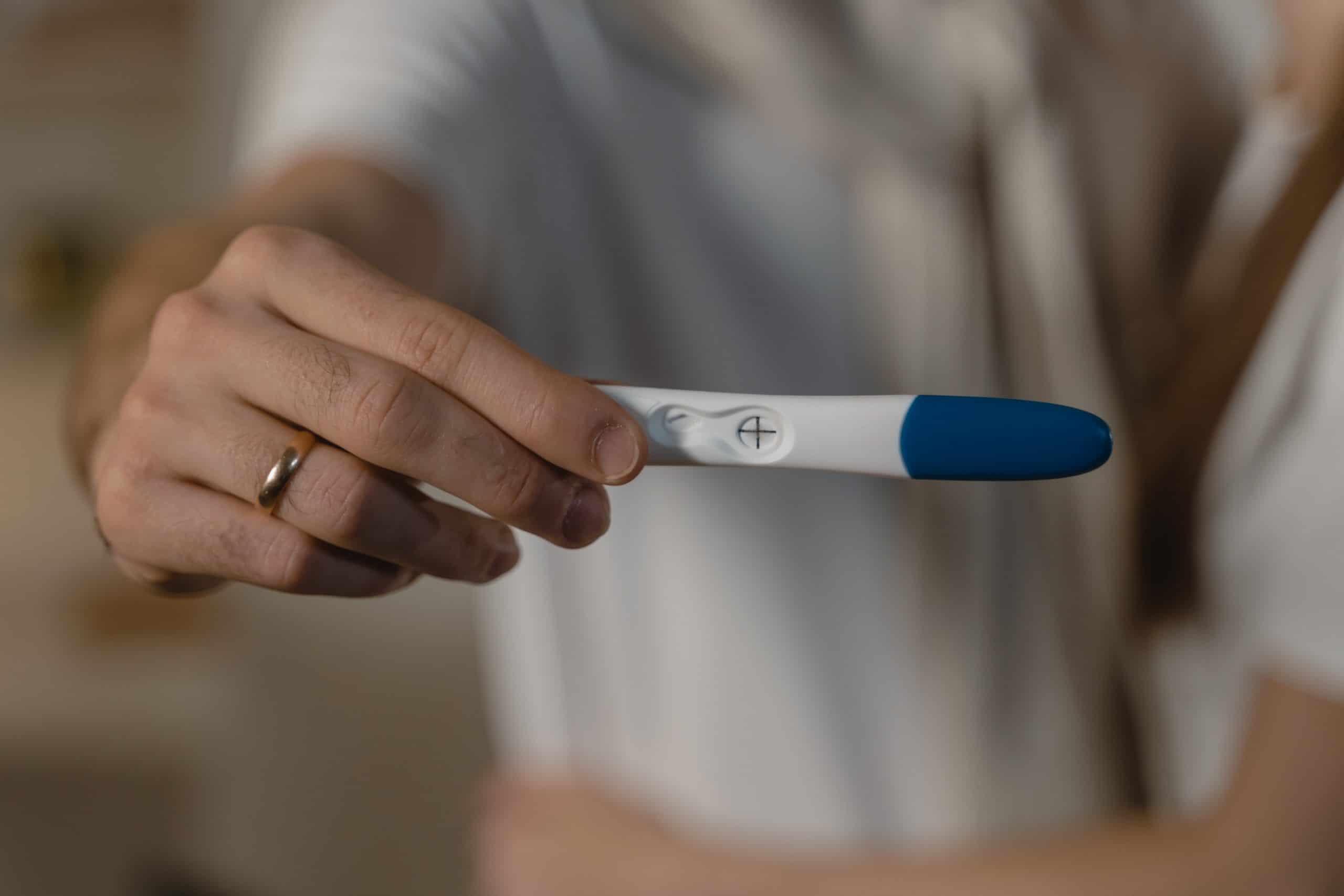When you need to know the results of a pregnancy test, the last thing you want to worry about is accuracy. Fortunately, home pregnancy tests have a pretty good track record. They’re 97 percent accurate, according to Parents magazine. Surprisingly, though, the most common cause of “false positives” isn’t false at all, Lanalee Araba Sam, an OB-GYN from Fort Lauderdale, told Parents.  “Some women can get a positive pregnancy test and then three days after their period is due, they have a really heavy period,” Sam said. “Really what they’ve had is an early miscarriage called a chemical pregnancy, and a lot of people call that a false positive. They don’t recognize it as a positive pregnancy test that ultimately results in miscarriage.” The truth is, home pregnancy tests detect the hormone human chorionic gonadotropin, or hCG. The body releases hCG after a fertilized egg attaches to the uterine wall and a placenta begins to form. Beyond early miscarriages, there are a few factors that can cause a truly false positive reading—some of which account for the 3 percent of tests that show inaccurate results. While they’re rare, they can be devastating (or anxiety inducing) for women and couples. Here are a few possible causes of this infrequent event:
“Some women can get a positive pregnancy test and then three days after their period is due, they have a really heavy period,” Sam said. “Really what they’ve had is an early miscarriage called a chemical pregnancy, and a lot of people call that a false positive. They don’t recognize it as a positive pregnancy test that ultimately results in miscarriage.” The truth is, home pregnancy tests detect the hormone human chorionic gonadotropin, or hCG. The body releases hCG after a fertilized egg attaches to the uterine wall and a placenta begins to form. Beyond early miscarriages, there are a few factors that can cause a truly false positive reading—some of which account for the 3 percent of tests that show inaccurate results. While they’re rare, they can be devastating (or anxiety inducing) for women and couples. Here are a few possible causes of this infrequent event:
1. Prescriptions make a difference.
The medications you take can affect the outcome of a home pregnancy test, especially if you’re taking any kind of fertility medication. This can be particularly frustrating because couples using fertility medications are often the ones with highest hopes for conception.  hCG trigger shots like Novarel, Pregnyl, Ovidrel, and Profasi cause the release of mature eggs, and if a test is taken too soon, you can get a false reading. Other medications can cause incorrect results as well. Antianxiety, antipsychotic, anticonvulsant, and diuretic medications are known to affect the outcomes of home pregnancy tests.
hCG trigger shots like Novarel, Pregnyl, Ovidrel, and Profasi cause the release of mature eggs, and if a test is taken too soon, you can get a false reading. Other medications can cause incorrect results as well. Antianxiety, antipsychotic, anticonvulsant, and diuretic medications are known to affect the outcomes of home pregnancy tests.
2. Past Pregnancies
Sometimes an egg will become fertilized but does not attach to the uterine wall. As we mentioned earlier, this is called a “chemical pregnancy.” A woman won’t usually know she experienced a chemical pregnancy unless she takes a pregnancy test very early—for example, before a missed period.  Chemical pregnancies account for 50 to 75 percent of all miscarriages. Healthcare professionals suggest waiting at least one week after your expected period before taking any kind of at-home test to avoid a reading that tells more about something that happened in the past than what you should prepare for in the future.
Chemical pregnancies account for 50 to 75 percent of all miscarriages. Healthcare professionals suggest waiting at least one week after your expected period before taking any kind of at-home test to avoid a reading that tells more about something that happened in the past than what you should prepare for in the future.
3. Pregnancies Outside the Uterus
An ectopic pregnancy occurs when a fertilized egg attaches someplace other than the uterus, like a fallopian tube, the cervix, or an ovary. An embryo cannot survive anywhere outside the uterus, so ectopic pregnancies aren’t viable. However, as long as the fertilized egg is growing, your body will continue to produce hCG, which will result in a positive pregnancy test.  An ectopic pregnancy is a serious medical emergency that can lead to severe blood loss and damage to (or even loss of) reproductive organs. Some symptoms of an ectopic pregnancy are nausea, sore breasts, light to heavy spotting or bleeding, dizziness, fainting, or pressure on your rectum. If you think you may be experiencing an ectopic pregnancy, seek medical help immediately.
An ectopic pregnancy is a serious medical emergency that can lead to severe blood loss and damage to (or even loss of) reproductive organs. Some symptoms of an ectopic pregnancy are nausea, sore breasts, light to heavy spotting or bleeding, dizziness, fainting, or pressure on your rectum. If you think you may be experiencing an ectopic pregnancy, seek medical help immediately.
4. User Error
At-home pregnancy tests are convenient, but they aren’t flawless. It’s important to check the expiration date and follow all instructions exactly when using a test.  It’s also important to take the test first thing in the morning. hCG is the most concentrated the first time you go to the bathroom after waking up, which will ensure more accurate test results. Taking a test too early in your cycle or waiting too long to check the results of the test can also give you false information. If you’ve taken a test but still don’t feel confident about the results, you can go to your doctor to have a blood test performed.
It’s also important to take the test first thing in the morning. hCG is the most concentrated the first time you go to the bathroom after waking up, which will ensure more accurate test results. Taking a test too early in your cycle or waiting too long to check the results of the test can also give you false information. If you’ve taken a test but still don’t feel confident about the results, you can go to your doctor to have a blood test performed.  Ultimately, your doctor isn’t nearly as likely to make a mistake when it comes to whether you’re expecting.
Ultimately, your doctor isn’t nearly as likely to make a mistake when it comes to whether you’re expecting.



